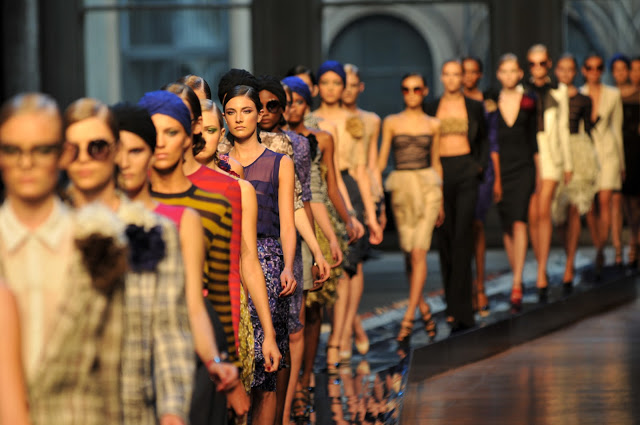Kindly note that I put “personal story” in the title to this post.
That is so that it is overtly clear that this post is based on my experience—and on my interpretation of the events that I experienced.
Storytelling is important for understanding; anorexia involves a complex matrix of conflicting behaviors and reactions that are not well understood and are often judged. It is my intention to use my experiences to illustrate—and I have found that one can understand better when a concept has a context that one can identify with.
While my truths are often difficult for me to tell, I know that in doing so I am potentially helping garner understanding. As I tell this short story, I will try and tell it from the way that I saw the world when I was 21.
I was anorexic, but I would not admit to that, nor would I acknowledge that I had any of the behavioral or psychological problems associated with an eating disorder. Due to my extremely low body weight and malnutrition I felt stressed and on edge; the internal lie and denial that I was living in was an additional factor that contributed to my tightly drawn jaw and ‘edgy’ disposition.
People would often tell me to “smile.” Sometimes complete strangers would mutter the instruction under their breath as they passed me by.
I would pretend not to notice—but I did. I noticed a lot.
I noticed my own misery and I noticed its affect on other people. How can one smile when one has a thousand damming thoughts per minute?
On the odd occasion that I would visit the busy high streets of London, I felt more concealed and felt that my sadness was accepted by the crowds of shoppers fighting for something to buy that might add some color to their self esteem. I had no interest in clothes or spending money. But I liked getting absorbed by the crowds—it created a calming affect. I was hidden.
When Peter tapped me on the shoulder in TopShop London, I jumped out of my skin. He startled me and I tried to walk away in an attempt to lose him in the clothes racks that were swarmed with babbling teenagers. I did not know what he wanted and I assumed that his intention was to harm me (my default reaction to anything or anyone new being fear).
Upon reflection I can see that it would have been highly unlikely that a pickpocket would tap me on my shoulder, or that he would be as bold as to follow me around a busy London shop, but my fear masked everything those days and I hurried away from him.
To my distress, he followed me. “Excuse me Miss,” he said, as he swam through shoppers in my wake. (Were all muggers this polite?) I slowed, my curiosity in his pursuit of me gradually tipping the scale on my fear. I turned to face him head on. “What do you want?”
Breathless, he explained that he was a scout for “Next,” a London model agency.
Suspicious, I wondered if he was involved in one of those scams that prays on young girls and promises them stardom in return for a ‘processing fee’. I told him I was not going to give him any money and to leave me alone. It surprised me that his next question was to ask if my Mother was shopping with me, and could he talk to her?
He was well dressed and kind. As a new scout in his initial intern position outside of London School of Fashion, Peter had found his first potential model in me and although he was nervous, he did everything right.
Even after he had stood talking and explaining the process to Mum for 30 minutes…even after he gave us his card and pleaded that we stop in at the London Next Office…even after Mum seemed to think he was genuine, I was suspicious of him.
What where his motives? Was he trying to lure us into some trap? Mum called the Next office number on the card—it was a genuine establishment. We made an appointment to go in the following day.
Mum was worried that they were interested in me because I was underweight.
She worried that this would potentially fuel the disturbing behavior that I displayed around food and my obsessive exercise schedule. Understandably, she was scared this would make things worse. Rumor had it that skinny models and TV caused eating disorders—and while I doubt she ever believed that her tomboy daughter had fallen prey to idealized glamour, she saw it her duty to be concerned. But Peter had been so charming that I think for this reason only she agreed to take me to the agency if I wanted to go. I did.
The ‘media’ gets constant reprimand for glamorizing emaciated figures of women. I think that the high fashion industry gets it even worse. I often get asked if my eating disorder behavior was an attempt to be thin because I was aspiring to be a supermodel. It was not.
It irritates me now that would people think that I was so shallow, but it stuns me that they really believe that even if I had been striving after thinness that I would have been able to take it as far as I did at will. That I would be able to starve myself near to death via willpower alone?
Not me. I have strong willpower, but not that strong! Anorexia is a complex mental disorder and not to be confused with vanity.
Plus, I never wanted to be a supermodel. I wanted to ride horses. The end.
But here I was, on a trip to London with my Mum and I had been ‘scouted,’ so what the hell. We went in. Uninspired by the fashion world as I was, I found the prospect of earning money just for standing about in clothes alluring.
The agency loved me. They thought I had massive potential and were very willing to work with me. I only had to do one thing for them, just one thing:
Put on weight.
They weighed me and politely explained that I needed to put on at least 20 pounds, more if possible. They thoroughly explained how I would get so much work and my potential to earn a ton of cash and have an exciting career with them—if I just put on weight.
They even assigned Peter to be my personal contact and check in with me weekly. They arranged for me to have my hair done at a top London salon and they bought me lunch whenever I went in to see them.
I did a few high fashion shoots and they kept me on the books for two years.
They worked with me for that long hoping that they would see the weight gain. Peter would laugh at me for things like coming into London with dirt under my nails having spent the morning mucking stables, but there were no jovial comments about my weight. He truly wanted me to put on weight. Success for me meant success for him also, but I believe that he genuinely cared for my well being,
Despite my desire to make it as a model, my weight continued to drop. I could not do it. I wanted to—I really wanted to. I failed.
I could not understand it then as I do now,
I did not know that anorexia affects the brain’s relationship with food and that it was more than something I could overcome with sheer willpower. I harshly blamed myself. What was wrong with me? Why couldn’t I control my weight? Why couldn’t I just eat?
Peter called me, so crestfallen, the day that the agency gave up and removed me from their list.
For me, well it was another testament to my lack of control. I remember talking to him on the phone and then the stillness after he hung up. The quiet space where I suffocated—the upset that was attempting to surface. I closed my eyes on the tears pleading for recognition and gently held my breath until I was sure there was emptiness in the place of emotion.
Another failure.
The fashion industry did not contribute to my eating disorder.
The agency that I worked with showed compassion and genuine concern for my well being. The models that I worked with were all heavier than I and encouraged me to eat at the few shoots that I did do. Every set had a food buffet offering laid out for us. I had all the opportunity and encouragement that I needed to get healthy.
Anorexia was to blame for my failure in the model industry, not the other way around.
Love elephant and want to go steady?
Sign up for our (curated) daily and weekly newsletters!
Assistant Editor: Terri Tremblett / Editor: Catherine Monkman
Photo: Yifu Chien/Pixoto


 Share on bsky
Share on bsky





Read 6 comments and reply